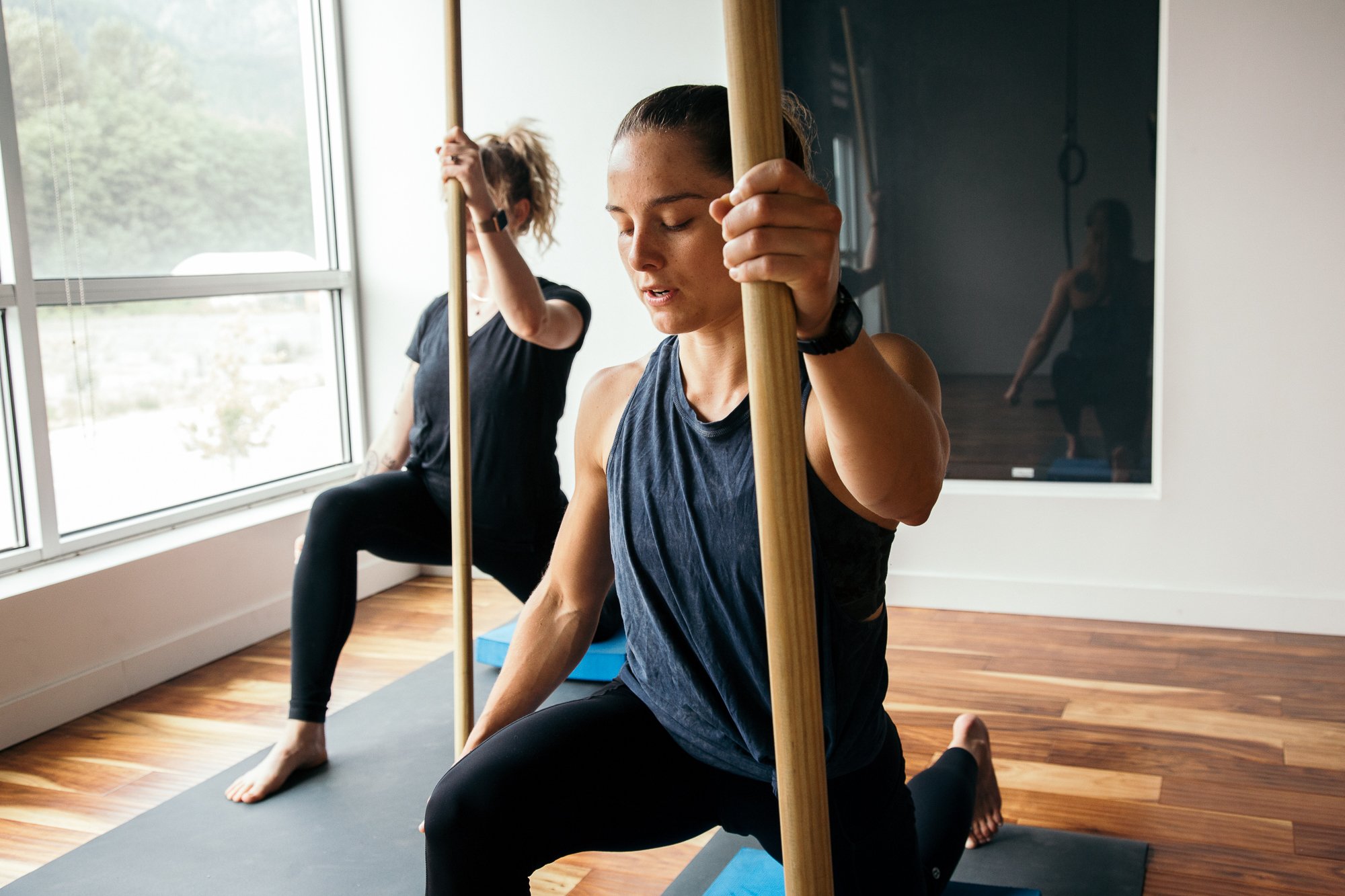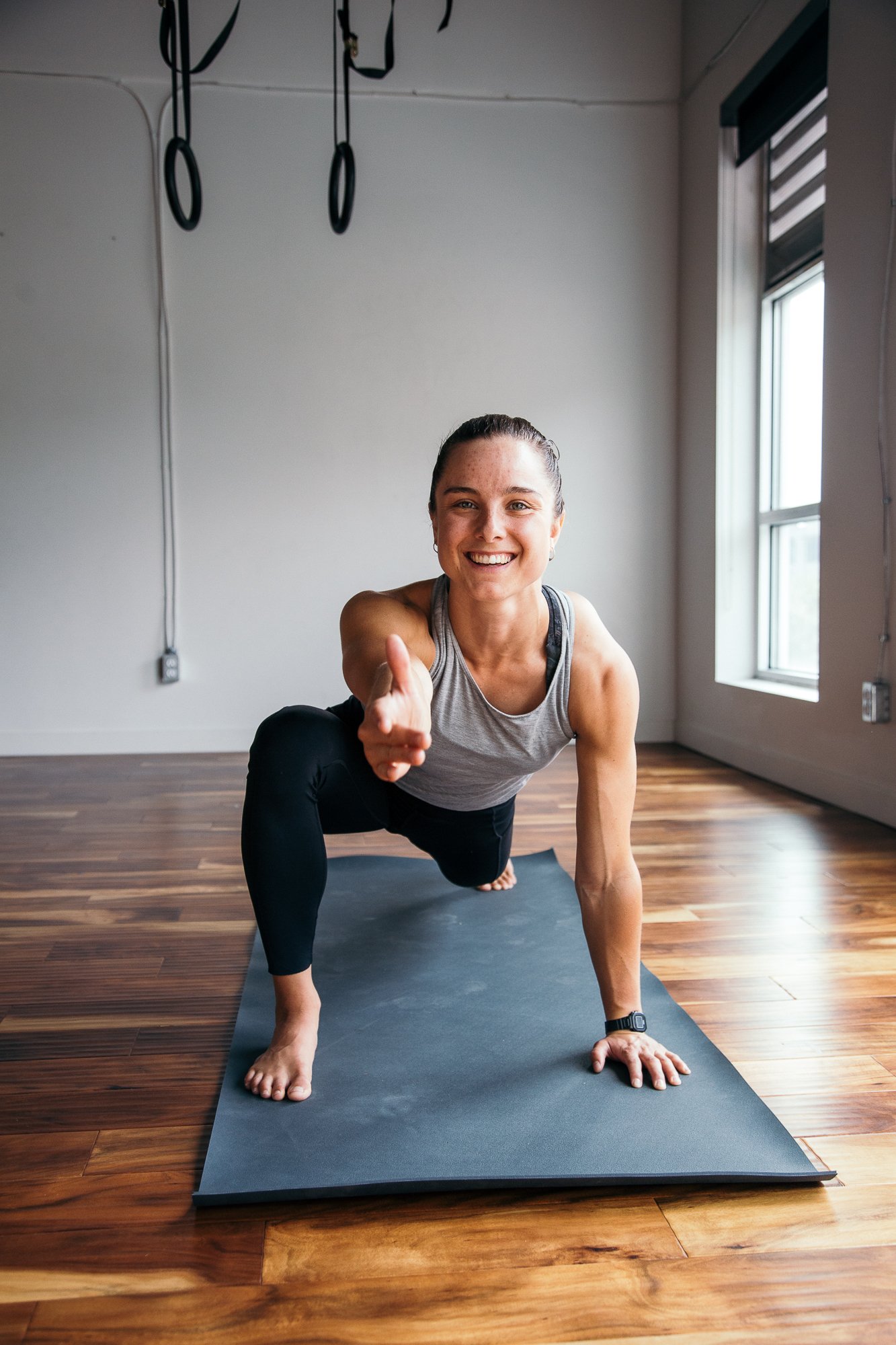Kathrine’s Mobility Journey
I came to Canada in 2018 in search of job that could provide the same feeling of fulfillment that my previous work had provided when I was a physiotherapist in Denmark. While preparing to challenge the Canadian physiotherapy national exam, I started to work as a personal trainer, and decided that I wanted to focus on injury prevention with my clients. It was at this time that I discovered the training method, Functional Range Conditioning®, and my mobility journey began.
What does it mean to have good mobility?
First, let's understand the difference between mobility and flexibility.
When I ask people if they include mobility in their rehabilitation or training routine, I’m often met with the answer “yes - I do yoga a couple of times a week.” Don’t get me wrong, I like yoga too, and doing yoga often helps to relieve pain, reduce stress, improve breathing patterns, etc. However, moving from one passive stretch to another does not qualify as targeted mobility training.
If we take a closer look at the concept of flexibility, it’s the ability of your muscles to passively stretch and lengthen. It’s like a rubber band's ability to stretch without breaking.
Mobility is about more than just stretching. It’s about whether you can access movement easily and without pain. Picture this as having the freedom and coordination to move around effortlessly. Imagine easily getting up and down from the floor when playing with your grandkids, recovering quickly if your snowboard catches an edge in the snow, or going over the handle bars on your mountain bike and absorbing the fall gracefully. In short, having good mobility means having control of your body to move in whatever way you wish.
So, what are the benefits of mobility training and physiotherapy, and why do I love it?
Through mobility training, you strengthen the communication between your brain and muscles. This is what we call neuromuscular control. This means that your body learns to activate the right muscles at the right time when facing all sorts of challenges. For example, your hamstrings know to lengthen quickly as you start sprinting for the bus, or during a surf session, your core muscles kick in at the perfect moment to keep you riding those waves upright.
Furthermore, through mobility training, you begin strengthening the muscles around the joints. This increase in muscle strength will promote joint health by stabilizing the structures surrounding your joints.
Having good mobility means that your body can share the workload across several joints. Lack of mobility can result in too much movement or load in one area, affecting joints and tissues in this region, leading to overuse injuries. Look at it this way: if your ankle isn’t moving much, your knee might have to pick up the slack. It’s like a chain reaction, where limited movement in one joint will affect the other joints in the body.
Finally, mobility exercises help move joint fluid around, bringing nutrients to the joint and making movement smoother by reducing friction between joint surfaces.
In Summary
Mobility training and physiotherapy goes beyond just stretching - it’s about controlling your body’s movement. The benefits of mobility training include improved neuromuscular control, improved strength around the joint, reduced risk of overuse injuries, improved joint lubrication and health.
I believe mobility training is the gateway to movement freedom. Whether you’re a pro athlete, recovering from an injury, or just like to get out there and enjoy life, mobility training is relevant for you! Mobility training will allow you to move freely and face any physical challenges that life throws your way.
I want to improve my mobility! Where do I go from here?
If reading this sparked your interest in mobility training and physiotherapy, and you’re currently dealing with a recent or lingering injury that you feel is impacting your mobility, I suggest scheduling a one-on-one physiotherapy assessment with me at FreeForm Physio & Pilates.
During your session I will take a detailed history, look at your specific mobility challenges and build a personalized treatment plan to help you overcome these limitations.
For those of you who want to improve overall mobility and do not currently have a significant injury, I suggest signing up for a mobility class with me at Wild Life Gym, Squamish.
If you have any further questions regarding mobility training/physiotherapy or whether this is the right fit for you, please contact me at kathrine.stolborg@freeformphysio.ca and I’ll be happy to discuss your unique situation with you.








